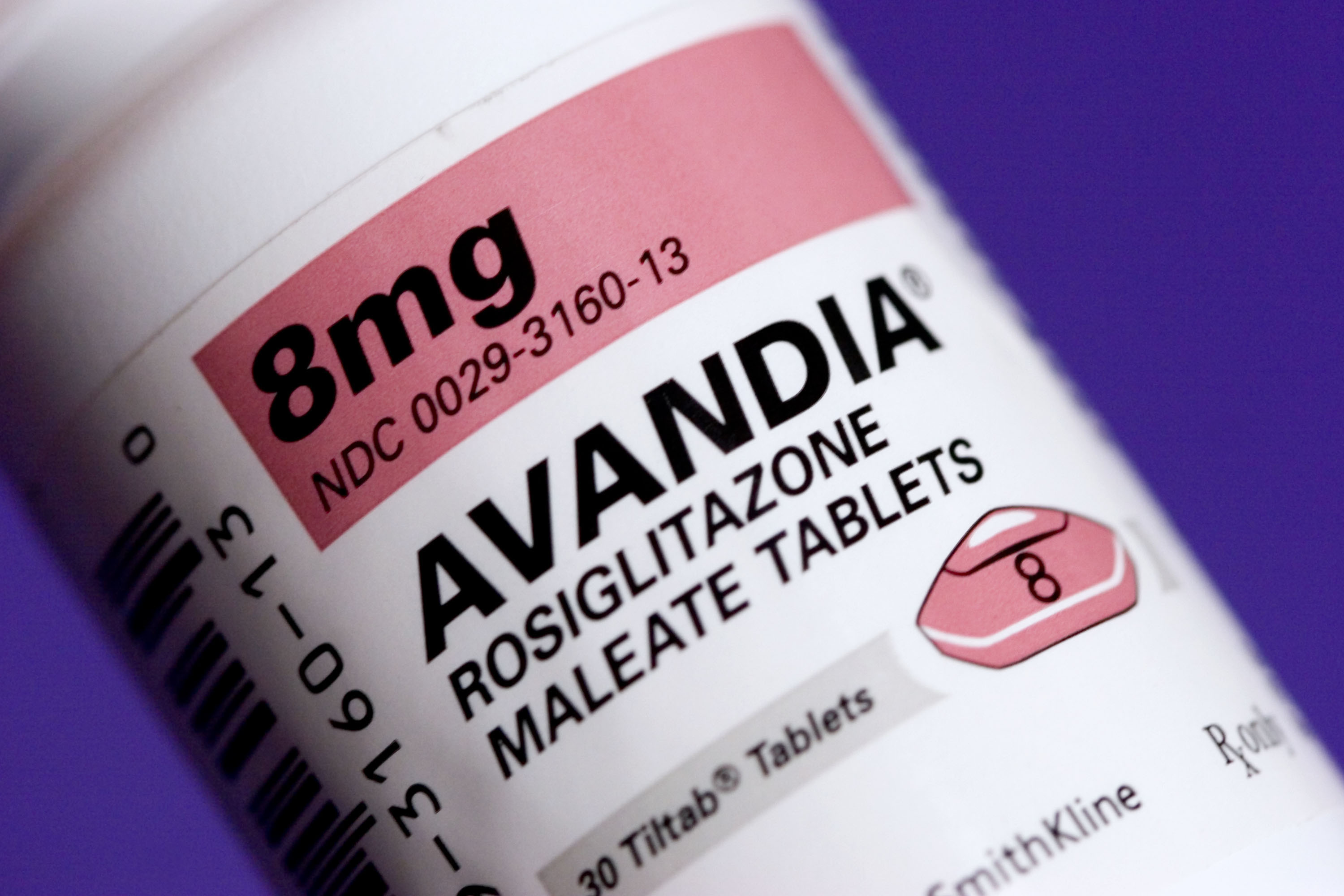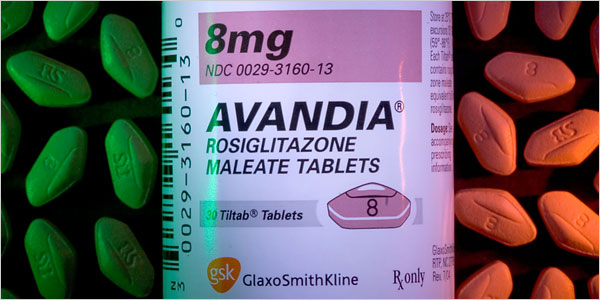Last Updated on April 15, 2025

Life Insurance While Taking Avandia
If you have diabetes, then you may be aware that there are many medicinal options on the market today. Some can increase blood sugar levels, others can decrease them. And they do this in a variety of ways.
Diabetes is complex – and there is no right or wrong method of managing it. Rather, trying available options and finding what works for your body. Your Doctor or Endocrinologist is most likely going to test various diabetes medications, to see how your body reacts. These types of recommendations will vary from one Doctor to another.
The types of medications you take to control your Diabetes, will have a direct impact on the life insurance options that will be available to you. Good news though! If the medications being prescribed are helping you keep your A1C and other diabetes levels within normal ranges, then you are in good shape.
Let’s discuss one of the diabetes medications that is well-known in the medical field today: Avandia.
Avandia’s Rough Background
Developed by GlaxoSmithKline under the generic name Rosiglitazone, Avandia first became available to the public in 1999. Unfortunately, though, the drug developed a bad reputation when a Cleveland Clinic cardiologist, Dr. Steven Nissen, claimed that Avandia increased the risk of a heart attack by 43% in an article he published. And, yes, he was able to cite many, many clinical trials as proof.
This drug was then issued a “black-box warning” by the FDA in 2007. It is the harshest – most damaging – label available. But, with the warnings in place, Avandia was allowed to remain on the market. Doctors typically turned to it as a last resort.
Thanks to some persuasion in 2013, GlaxoSmithKline was able to convince the FDA to again, examine Avandia. However, this time, they wanted them to compare the data results with those of similar drugs on the market – especially when it comes to cardiac issues and heart attacks.
Guess what? The FDA voted to remove the harsh warnings and made the drug more accessible to doctors and their diabetic patients.
 What Avandia Is and Who It Helps
What Avandia Is and Who It Helps
Like many diabetic drugs on the market, Avandia focuses on those patients with type 2 diabetes – and should not be prescribed to those with type 1 diabetes. This oral medication is designed to control blood sugar levels in individuals who tend to often be too high, such as those considered hyperglycemic. Avandia is not a drug that helps the body produce more insulin, but rather it helps the body respond more efficiently to the insulin it is already producing. This differs from many other diabetic medications.
Avandia may be used in combination with other medications used to manage type 2 diabetes. But, we should note that it is also most beneficial when it is combined with a healthy lifestyle that includes a healthy diet and exercise. It is not a replacement for these beneficial actions.
Important note: Avandia should not be used by an individual who is using insulin. Doing so will increase the risk of potential cardiac issues. It may take two to three months before the medication is working at its full, intended capacity.
How Avandia Will Make You Feel Better
If you suffer from diabetes, then you know that there are symptoms that are just unwelcome and downright unpleasant. Thankfully, the primary function of Avandia is aimed to help control and manage type 2 diabetes as much as possible. After all, keeping it under control can reduce the risk of complications – including severe cardiac events like heart attack and stroke. Want to lower your chances of these life-changing medical events happening? Drugs like Avandia can help.
MINOR SIDE EFFECTS:
- Joint and muscle pain
- Congestion – especially in the ears
- Difficulty sleeping
- Fever
- Stuffy and/or runny nose
MAJOR (ALTHOUGH RARE) SIDE EFFECTS:
- Joint and muscle pain
- Congestion – especially in the ears
- Difficulty sleeping
- Fever
- Stuffy and/or runny nose

Keep in mind that if you experience any of these major side effects, you should seek immediate medical attention.
It is important to remember that Avandia is designed to lower – and regulate – high blood sugar. However, if you are not properly caring for yourself, such as you are exercising too much or eating too little, your blood sugar may dip too low. This is called hypoglycemia.
Symptoms of this are:
- Dizziness
- Sudden sweating
- Increased heart rate
- Blurry vision
- Tingling in the hands and feet
If you experience any of these symptoms, it is important to talk to your medical team right away. Sometimes a simple adjustment to the dosage of medication can solve the problem.
Avandia and Your Life Insurance
Despite its past, Avandia is well known for helping those with type 2 diabetes manage their blood sugar levels. If you are taking this drug – or one like it – you may wonder how it will affect you when applying for life insurance.
If Avandia shows up on your profile, then this is a signal to the underwriter that you have type 2 diabetes. But, it also shows that you are working to manage it appropriately. See, many underwriters won’t dismiss an applicant with type 2 diabetes. They will, however, look to see how well your diabetes is being managed. Do not let this make you nervous, as you’ll simply need to provide details about your type 2 diabetes history, to your agent.

Here are some sample questions your agent will ask you:
- What age were you first diagnosed with Diabetes?
- What types of medications are you taking to control your Diabetes
- What is your most recent A1C reading?
- Do you have any Diabetes related complications?
- Are you compliant with your Doctor’s medical recommendations?
- Are you maintaining
Life insurance companies have evolved, especially in recent years. Underwriters will no longer view your Diabetes condition as a ‘death sentence’, but rather they’ll view you as a STANDARD or better risk. For years the Diabetes community has known that people with type 1 and type 2 diabetes could live healthy lives. Life insurance providers are just a little ‘slow’ to catch onto what we’ve always known.
Truth is, many people who have average to above average control of their Diabetes will be able to receive life insurance offers, without higher premiums due to Diabetes. Not only that, many people may have the luxury of qualifying for no medical exam policies. Generally speaking, if wanting to obtain a policy with the lowest premiums, you will need to complete a paramedical exam.
When beginning your search for life insurance with Diabetes, you’ll want to be careful about where you are getting your information from. Sadly, there are several websites that provide misleading information out there on the internet. If you are not careful, you could end up applying to the wrong life insurance company, and possibly get declined. There are still life insurance carriers that automatically decline you due to having Diabetes. Or in some cases, applying to the wrong company may lead to life insurance premiums being 25% to 50% higher.

Contacting an independent agent with expertise in the field of diabetes and life insurance is a great way to discover which companies can offer you the best policy at the best price. Everyone’s health profile, and financial objectives are different. We understand this. When working with an agent with Diabetes 365, you’ll be in touch with a knowledgeable agent who can help you navigate the Diabetes life insurance marketplace. It’s our job to provide a first class experience, while applying for coverage.
There has never been more life insurance options, and products for the Diabetes community. It can be overwhelming. We understand this, and want to work alongside you. Contact us today, and let our agents go to work for you. It doesn’t matter if you are looking for term life insurance, or permanent life insurance coverage. Maybe you need a $1 million policy, or just a basic burial insurance policy. We can help!
So, in other words, you keep managing your diabetes – and us help you get the life insurance you deserve. We’ve been in your shoes before, and understand the frustrations that may come with Diabetes and life insurance. Afterall, nothing is easy with Diabetes!

